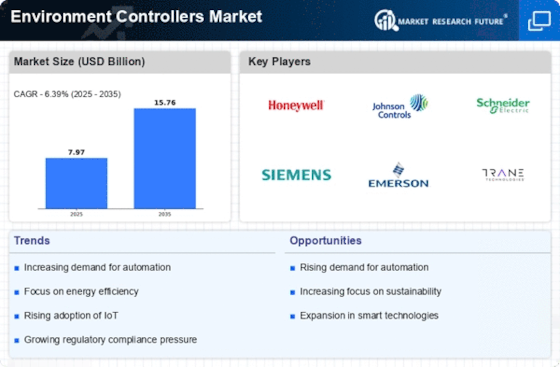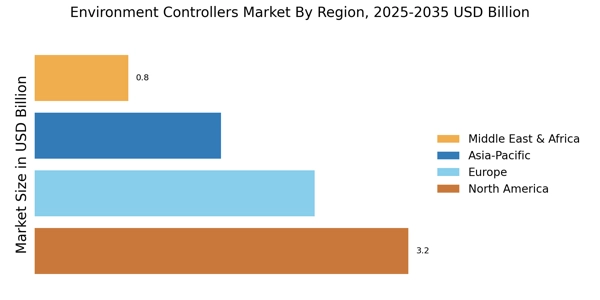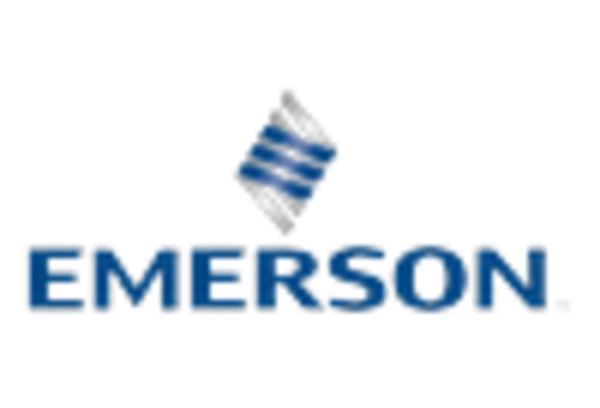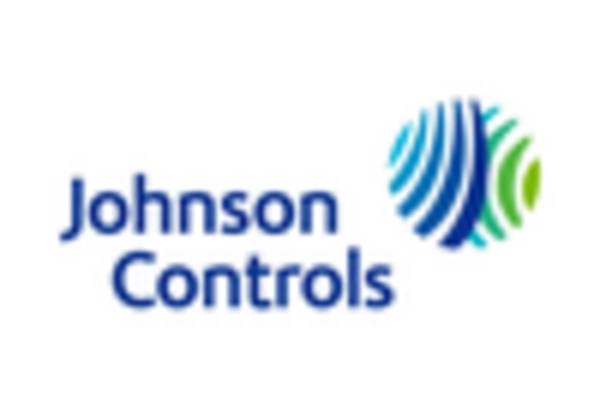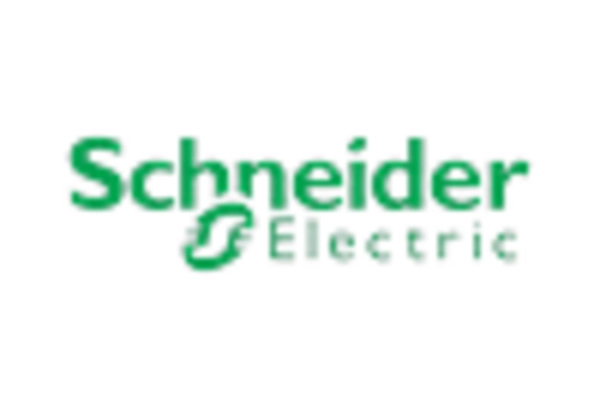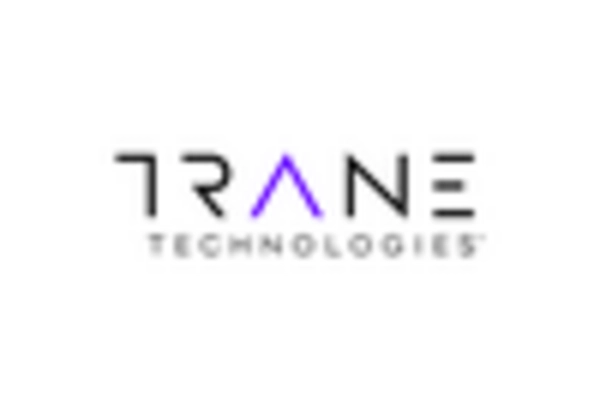Government Initiatives and Incentives
Government initiatives aimed at promoting energy efficiency and environmental sustainability are playing a crucial role in shaping the Environment Controllers Market. Various countries are implementing policies and providing incentives to encourage the adoption of energy-efficient technologies. These initiatives often include tax rebates, grants, and subsidies for businesses and homeowners who invest in environment controllers that reduce energy consumption. As a result, there is a noticeable increase in the adoption of such technologies across different sectors. Market analysis suggests that these government-backed programs are likely to drive a significant uptick in the market, with estimates indicating a potential growth of around 6% in the coming years. This supportive regulatory environment not only fosters innovation but also enhances consumer confidence in investing in advanced environment control solutions.
Increased Focus on Sustainable Practices
The heightened emphasis on sustainability is a key driver for the Environment Controllers Market. As businesses and consumers alike strive to reduce their carbon footprints, there is a growing demand for environment controllers that promote energy efficiency and resource conservation. This trend is reflected in various sectors, including residential, commercial, and industrial applications, where sustainable practices are becoming a standard expectation. Recent statistics indicate that the market for energy-efficient environment controllers is anticipated to expand significantly, with a projected growth rate of approximately 7% over the next few years. Companies are responding by developing products that not only meet regulatory standards but also exceed consumer expectations for sustainability, thereby enhancing their market competitiveness.
Technological Advancements in Automation
Technological advancements are significantly influencing the Environment Controllers Market. The integration of automation technologies, such as the Internet of Things (IoT) and artificial intelligence (AI), is enabling more sophisticated environment control systems. These technologies allow for real-time monitoring and adjustments based on environmental conditions, which enhances user experience and operational efficiency. For instance, smart thermostats and automated ventilation systems are becoming increasingly popular, as they can optimize energy usage while maintaining comfort. Market data indicates that the automation segment is expected to witness a substantial increase, with projections suggesting a growth rate of around 10% annually. This shift towards automation not only improves energy efficiency but also aligns with the growing consumer preference for smart home solutions.
Rising Demand for Indoor Air Quality Solutions
The increasing awareness regarding indoor air quality is driving the Environment Controllers Market. Consumers are becoming more conscious of the health implications associated with poor air quality, leading to a surge in demand for advanced air purification and monitoring systems. According to recent data, the market for air quality control systems is projected to grow at a compound annual growth rate of approximately 8% over the next five years. This trend is particularly evident in urban areas where pollution levels are higher, prompting both residential and commercial sectors to invest in environment controllers that ensure cleaner air. As a result, manufacturers are innovating to provide solutions that not only monitor but also actively improve indoor air quality, thereby enhancing the overall living and working conditions.
Growing Urbanization and Infrastructure Development
The trend of urbanization and infrastructure development is a significant driver for the Environment Controllers Market. As urban populations continue to rise, there is an increasing need for efficient environment control systems in both residential and commercial buildings. This demand is particularly pronounced in developing regions, where rapid urban growth is occurring. Market data suggests that the construction of new buildings and the renovation of existing structures are leading to a heightened demand for advanced environment controllers that can manage air quality, temperature, and energy consumption effectively. Projections indicate that this segment of the market could experience a growth rate of approximately 9% over the next few years, as urban planners and developers prioritize sustainable and efficient building practices.


